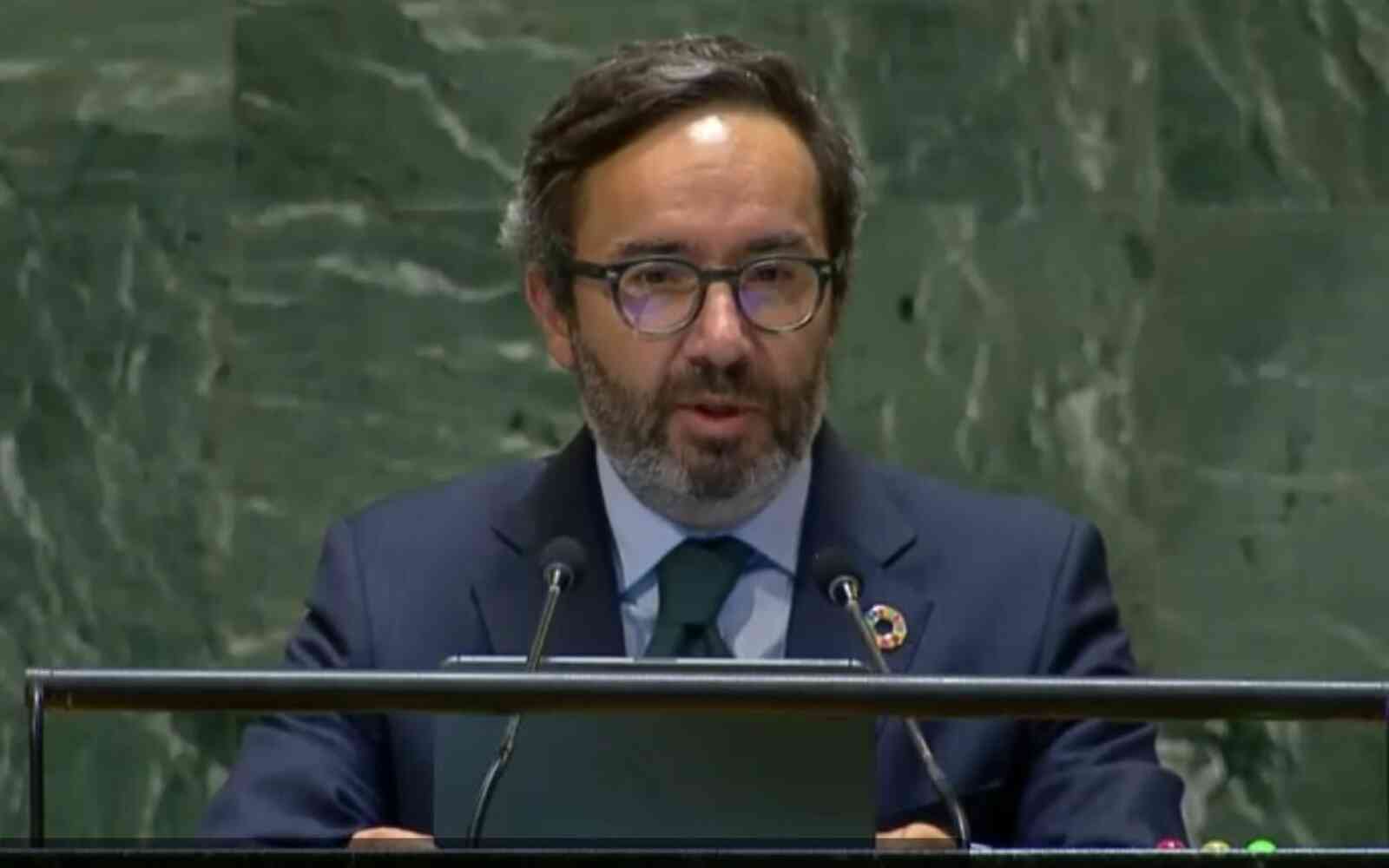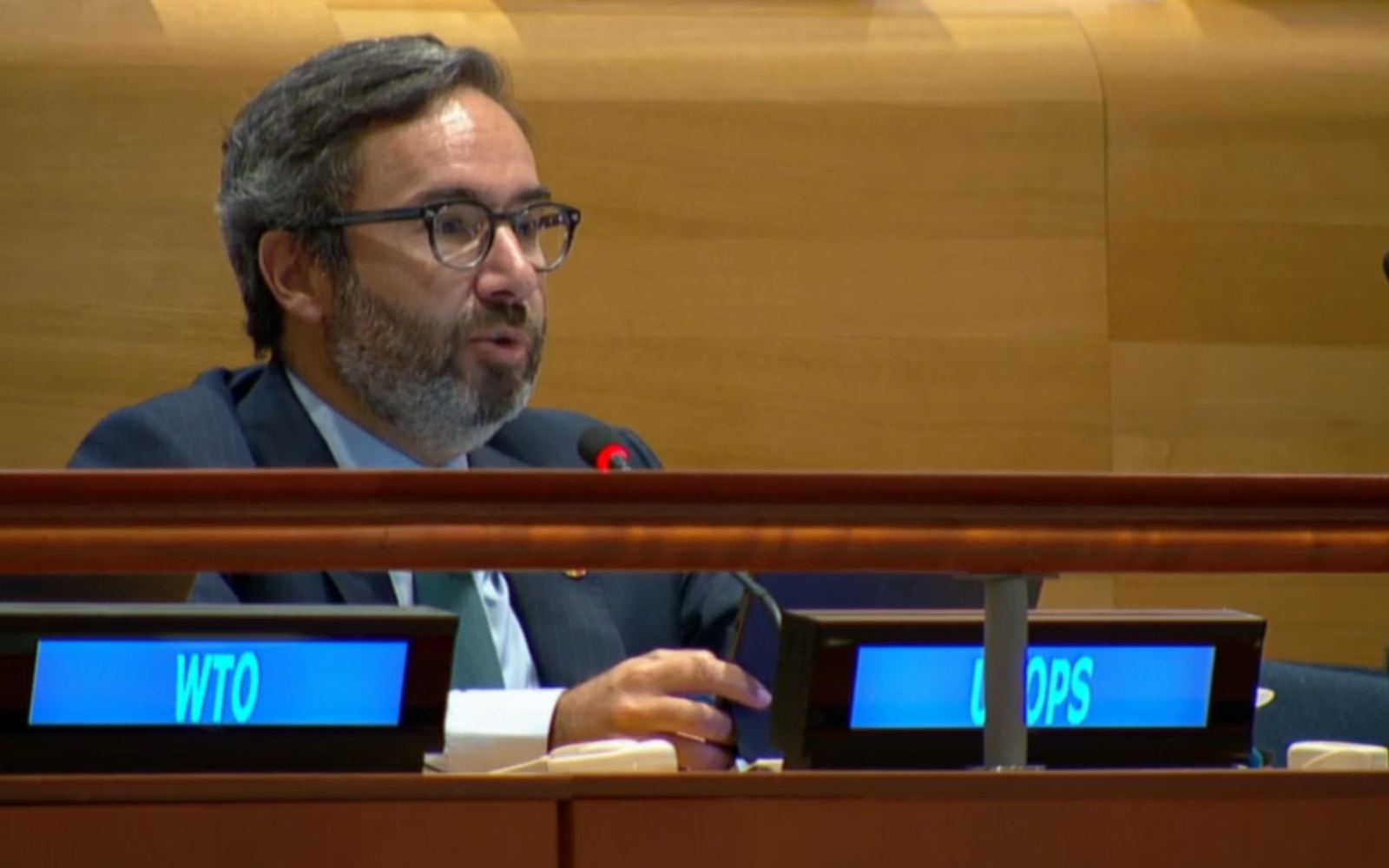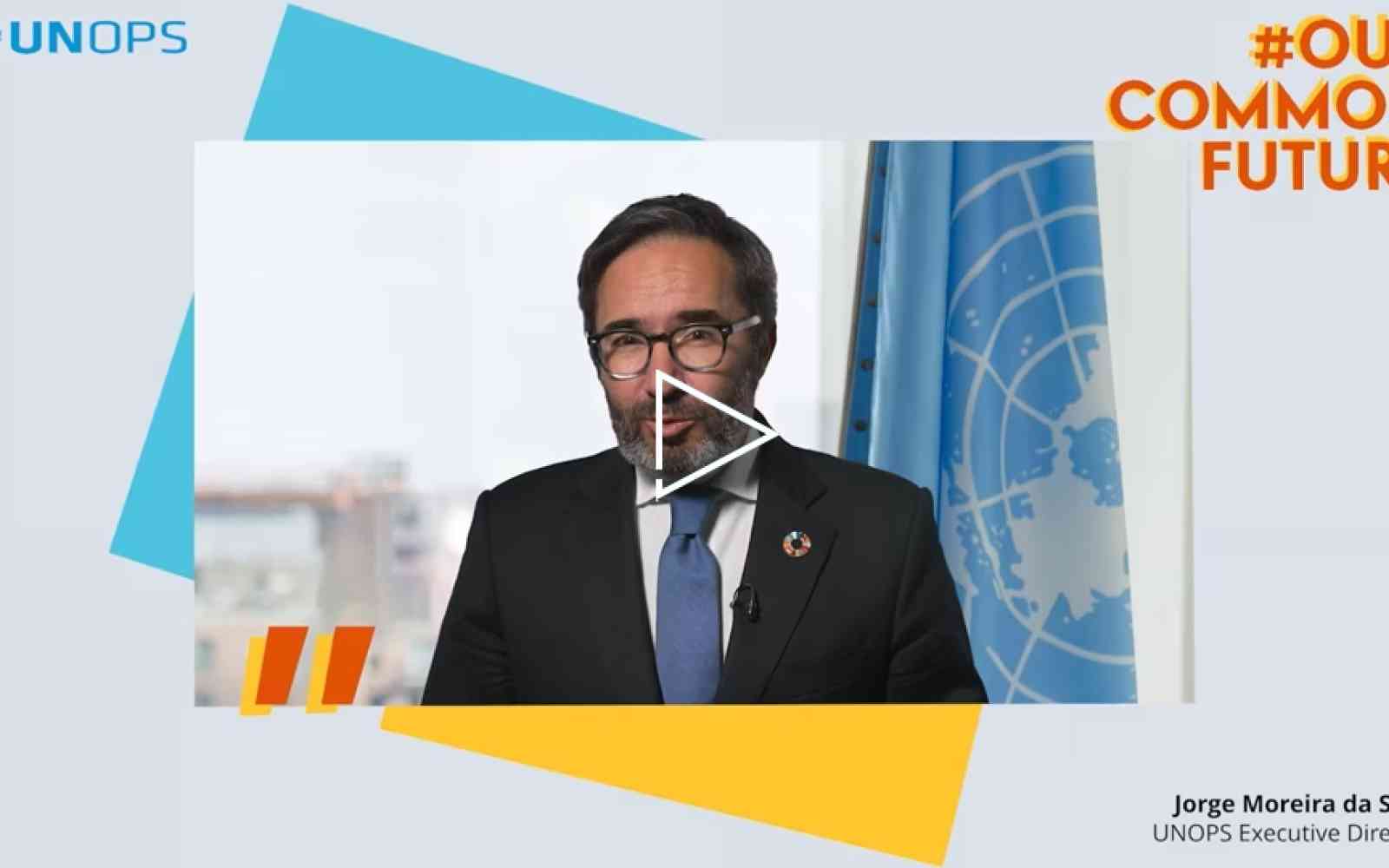The United Nations Office for Project Services (UNOPS)
Statement by UNOPS Executive Director at the Summit of the Future Action Days event on sea level rise
Statement by Jorge Moreira da Silva, UN Under-Secretary-General and UNOPS Executive Director to the Summit of the Future Action Days event: 'Sea level rise: Building resilience through data and community in the Asia Pacific' - 20 September 2024
Excellencies, colleagues, and friends,
It is an honour to be here, at this important and urgent conversation.
Last month’s UN report on Surging Seas presented us with an alarming picture: Since the start of the 20th century, global-mean sea level has risen faster than over any prior century in at least the last 3,000 years. And the rate of increase is accelerating.
The Asia Pacific region - home to 60 per cent of the world’s population - is particularly prone to the impacts of sea level rise, given the region’s extensive coastlines, low-lying territories and many small island states.
Addressing the existential threat of sea level rise to these communities requires collective and urgent action, across mitigation, adaptation and loss and damage efforts. Because as you know, even after net-zero emissions are reached, sea level rise will continue, due to the impact of past warming.
Today’s event is an opportunity to ask how we can help mobilize climate action and the financing needed to build resilience in coastal communities.
To succeed, approaches need to be driven by robust data and based around the needs, views and ownership of the local community. Having the right implementation capacity to bring these aspects together is crucial.
UNOPS stands by countries in the Asia Pacific region, in your efforts to respond to these challenges. We are committed to providing practical solutions to help countries combat climate change and build resilience, through our expertise in infrastructure, procurement and project management services.
Allow me to share some examples.
In Kiribati, we are working with the government of Australia to deliver inclusive and nature-based sustainable coastal protection. The project will implement both resilient infrastructure and nature-based solutions and create a model for long-term climate adaptation. It is developed in close consultation with the community, together with our civil society and government partners.
In north-western Sri Lanka, funded by the EU, UNOPS has helped communities in low lying coastal areas to increase their resilience to floods and storm water, by integrating nature based solutions with sustainable drainage systems for flood protection.
We administer the Rising Nations Initiative, a Member States-led initiative that supports the Tuvalu and Pacific Atoll countries’ efforts to preserve their sovereignty, protect their statehood, and safeguard the rights and heritage of affected populations at the frontline of the climate crisis.
And together with the UNDRR, we host the Santiago Network Secretariat, which helps countries hardest hit by the climate emergency to access the technical assistance they need to foster resilience, build capacity, and manage loss and damage.
Through the Initiative for Climate Action Transparency (ICAT), which UNOPS hosts, we have established a practical tool for assessing loss and damage and supported its application for early warning monitoring and evaluation frameworks to manage disaster risks from slow onset events such as sea-level rise.
We are proud to provide the operational backbone and work closely with UN Global Pulse, the Secretary-General’s innovation lab, which supports responsible and inclusive innovation across the UN system and is serving as a platform for multi-stakeholder partnerships, including in the Asia-Pacific region.
To secure a climate-resilient future in the face of rising sea levels, we need practical solutions. Scaled up finance is a key part of the way forward, as is policy and the creation of an enabling environment. But capacity for implementation is another key - and often overlooked - aspect of this approach.
UNOPS stands ready to help countries - including in the Asia Pacific region - bridge that implementation gap. Always working in partnerships, always ready to bring our operational focus to respond to needs, in the pursuit of a sustainable, resilient and prosperous future
Thank you.
Pleasure to open side event on addressing sea level rise in Asia-Pacific. @UNOPS is committed to supporting resilient infrastructure & nature-based solutions, empowering communities, & bridging implementation gap.
— Jorge Moreira da Silva (@UNOPS_Chief) September 20, 2024
Interesting discussions from global colleagues.#OurCommonFuture https://t.co/ym2jOc7RTt pic.twitter.com/uuGj9zkT1L
To succeed, approaches need to be driven by robust data and based around the needs, views and ownership of the local community. Having the right implementation capacity to bring these aspects together is crucial.
UNOPS stands by countries in the Asia Pacific region, in your efforts to respond to these challenges. We are committed to providing practical solutions to help countries combat climate change and build resilience, through our expertise in infrastructure, procurement and project management services.
Allow me to share some examples.
In Kiribati, we are working with the government of Australia to deliver inclusive and nature-based sustainable coastal protection. The project will implement both resilient infrastructure and nature-based solutions and create a model for long-term climate adaptation. It is developed in close consultation with the community, together with our civil society and government partners.
In north-western Sri Lanka, funded by the EU, UNOPS has helped communities in low lying coastal areas to increase their resilience to floods and storm water, by integrating nature based solutions with sustainable drainage systems for flood protection.
We administer the Rising Nations Initiative, a Member States-led initiative that supports the Tuvalu and Pacific Atoll countries’ efforts to preserve their sovereignty, protect their statehood, and safeguard the rights and heritage of affected populations at the frontline of the climate crisis.
And together with the UNDRR, we host the Santiago Network Secretariat, which helps countries hardest hit by the climate emergency to access the technical assistance they need to foster resilience, build capacity, and manage loss and damage.
Through the Initiative for Climate Action Transparency (ICAT), which UNOPS hosts, we have established a practical tool for assessing loss and damage and supported its application for early warning monitoring and evaluation frameworks to manage disaster risks from slow onset events such as sea-level rise.
We are proud to provide the operational backbone and work closely with UN Global Pulse, the Secretary-General’s innovation lab, which supports responsible and inclusive innovation across the UN system and is serving as a platform for multi-stakeholder partnerships, including in the Asia-Pacific region.
To secure a climate-resilient future in the face of rising sea levels, we need practical solutions. Scaled up finance is a key part of the way forward, as is policy and the creation of an enabling environment. But capacity for implementation is another key - and often overlooked - aspect of this approach.
UNOPS stands ready to help countries - including in the Asia Pacific region - bridge that implementation gap. Always working in partnerships, always ready to bring our operational focus to respond to needs, in the pursuit of a sustainable, resilient and prosperous future
Thank you.












